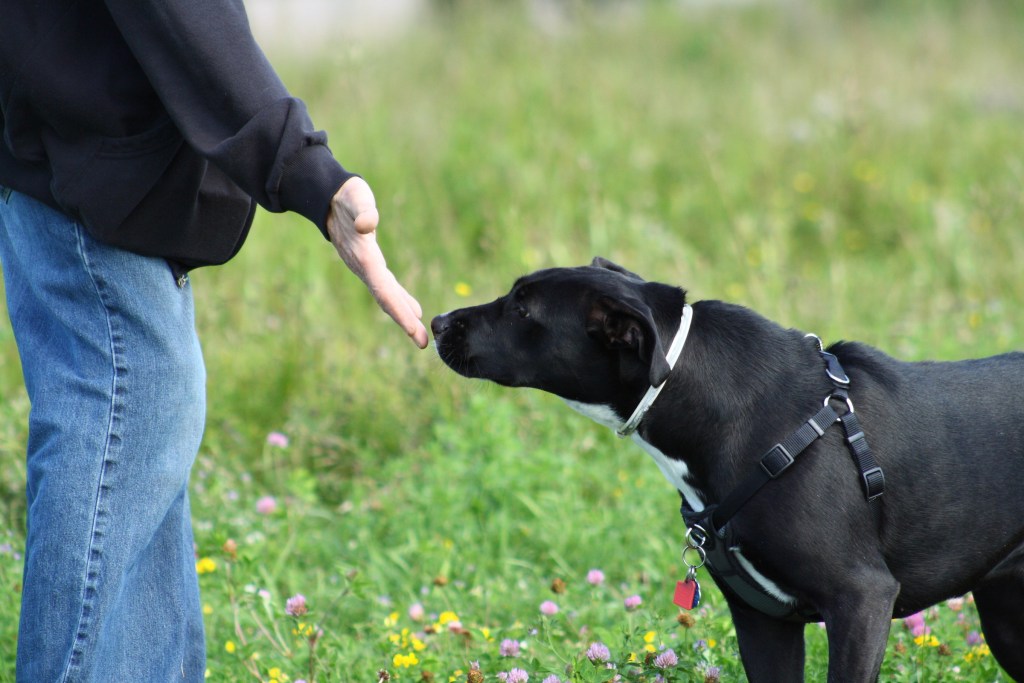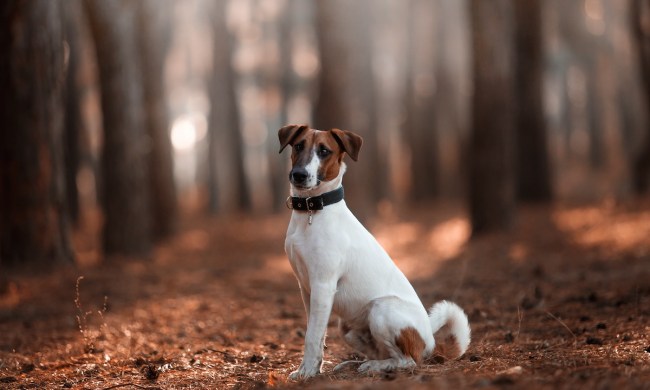A dog’s ability to smell is no joke. Not only is it unimaginably stronger than a human’s sense of scent, but it can detect chemicals and pheromones in the air that have no smell at all. Humans don’t have this ability—nor do we understand exactly how this works. In fact, until 2018, there was no research at all to help us answer the ultimate question in dog detection: can dogs smell fear?
Let’s dive into the popular old wives’ tale to see if there’s any truth to it. Now that animal researchers have learned a little more about the way dogs interact with human emotions, we can start to piece together what it all means.

Can dogs smell fear?
If you had asked just a few years ago, even as recently as 2017, animal experts would have told you that no evidence exists to back the claim that dogs can smell fear. In the summer of that year, the New York Times wrote, “In theory, some dedicated chemist might be able to isolate an odor from the sweat or urine of scared people, and then track the reactions of dogs to it,” but “such an experiment has not been done.”
Biagio D’Aniello and a team of talented researchers decided to change that. The following year, the team conducted an experiment to determine whether pet dogs could detect a difference in odor between the sweat of a happy or fearful person. The study subjects—labradors and golden retrievers—were each exposed to a scent (the sweat of a happy person, that of a fearful person, and a control sample with no scent) and observed for a number of reactions.
In the end, the study found that dogs reacted differently to the sweat of a fearful person. When smelling sweat produced by fear, the animals were less likely to approach a stranger in the room. They were also more likely to appear stressed themselves—their heart rates even increased.
When smelling either the control or happy sweat smell, however, dogs’ heart rates stayed a lot lower. The odor from the happy person’s sweat also coincided with an increase in interaction between the dog and the stranger in the room. The data from this experiment suggest that “chemosignals” allow the communication of emotions between species.
Dogs are able to pick up on these chemicals thanks to a special organ in their nasal cavity. Jacobson’s organ contains nerves that respond to chemicals, pheromones, and other “undetectable smells,” according to VCA Hospitals. When activated, Jacobson’s organ sends signals to the brain, giving a dog information about who or what they’re sniffing.

How can a dog tell when you’re nervous?
Of course, scent is not the only way a dog can distinguish whether a person is feeling afraid. Dogs, like people, can take advantage of all five senses: sight, hearing, smell, taste, and touch, but smell is by far their strongest tool.
A dog can still tell by your body language, posture, and gestures whether you feel comfortable or threatened, though they can easily misinterpret without getting the full picture. SF Gate notes that stiffening up and staring at a pup, for example, might be a natural reaction for someone who fears dogs, though a canine might interpret this as threatening. It’s a good thing dogs have all five senses to rely on!
Of course, whether or not a dog can literally smell a change in human emotion needs more research. Though a chemical change may be detectable through sweat, it’s not a guarantee that every fearful person sweats when meeting a dog. Can the pup still tell? We’re not sure.
One thing is for sure, though: dogs and humans impact each other emotionally. Numerous studies have suggested that our four-legged friends are particularly sensitive to human stress, even reflecting their owner’s stress levels in their own blood and hormone levels, according to NPR.
In conclusion
It takes sight, sound, scent, and even senses people cannot comprehend in order to understand a canine’s full experience. This is partly why it’s so tricky to tell whether a pup is reacting to a chemical scent or another sensory experience. Whether or not dogs can smell fear may not be fully scientifically proven, but researchers and pet parents alike are well on their way to understanding this phenomenon to its fullest extent.



